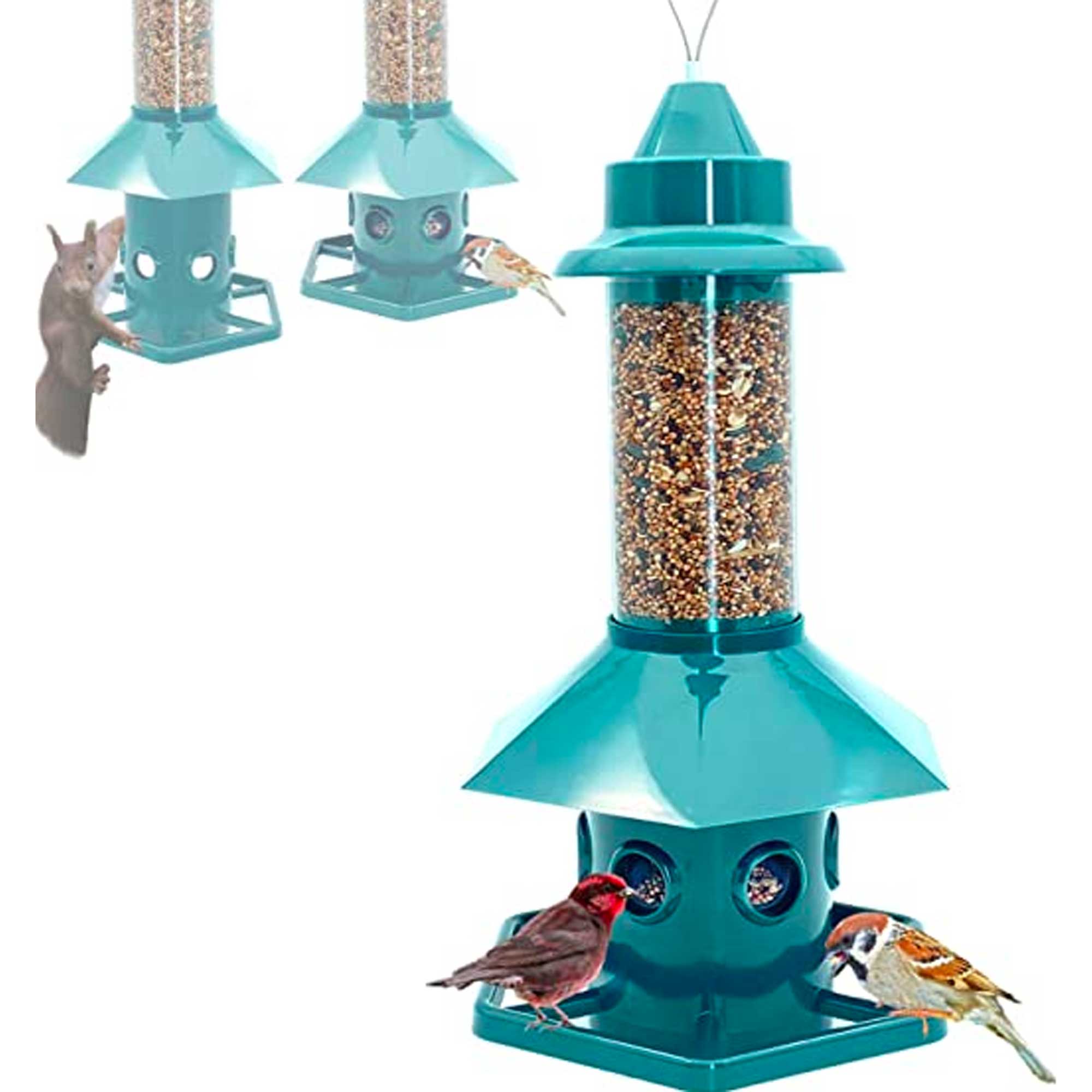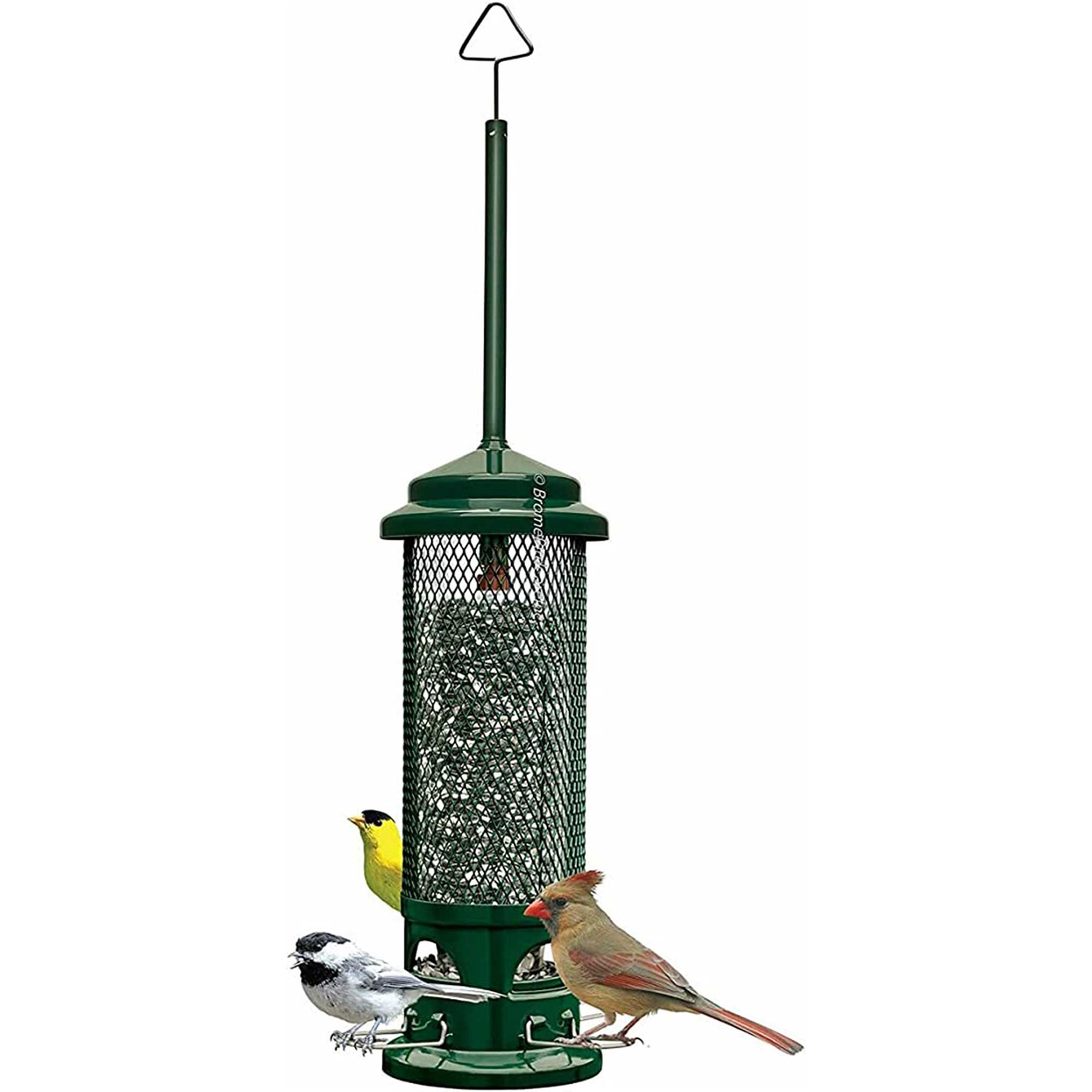How to squirrel-proof a home – 3 ways to keep your attic free from little residents
These three humane prevention methods will help you squirrel-proof your home

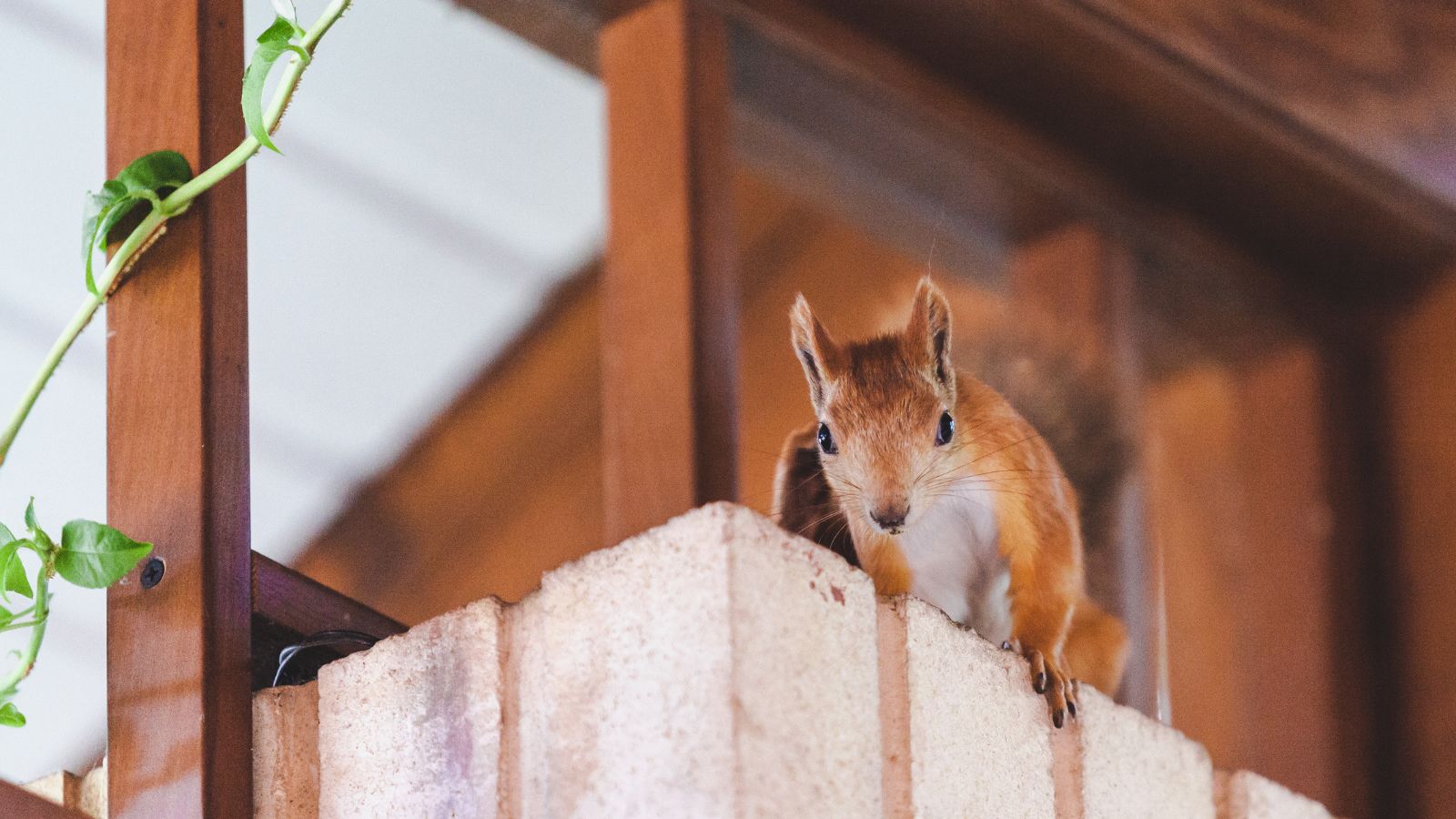
Squirrels are certainly adorable, but that doesn't mean we want them to set up a home in our attics.
Prevention is always the best cure, so if you don't want to get rid of squirrels from your attic, taking humane precautions is by far your best bet.
According to professional pest control experts, squirrel-proofing a home involves just three simple steps.
How to squirrel-proof a home
Squirrels can be drawn towards our homes for several reasons, from food to warmth and shelter, making it very difficult to get rid of squirrels once they have made a home. This is especially true in the colder months when a nice heated attic is like a five-star luxury retreat.
‘Squirrels often build leafy nests high up in trees, but they prefer to nest and raise their young inside tree cavities, where they are protected from the elements. Attics provide a perfect substitute for a hollow tree, and squirrels will move in if access is available,’ explains Dr. Jim Fredericks, a board-certified entomologist and senior vice president of public affairs at the National Pest Management Association (NPMA).

Dr Jim Fredericks is Senior VP of Public Affairs at the National Pest Management Association and the Executive Director for the Professional Pest Management Alliance. In 2012, he received his Ph.D. in Entomology and Wildlife Ecology from the Department of Entomology and Wildlife Ecology at the University of Delaware.
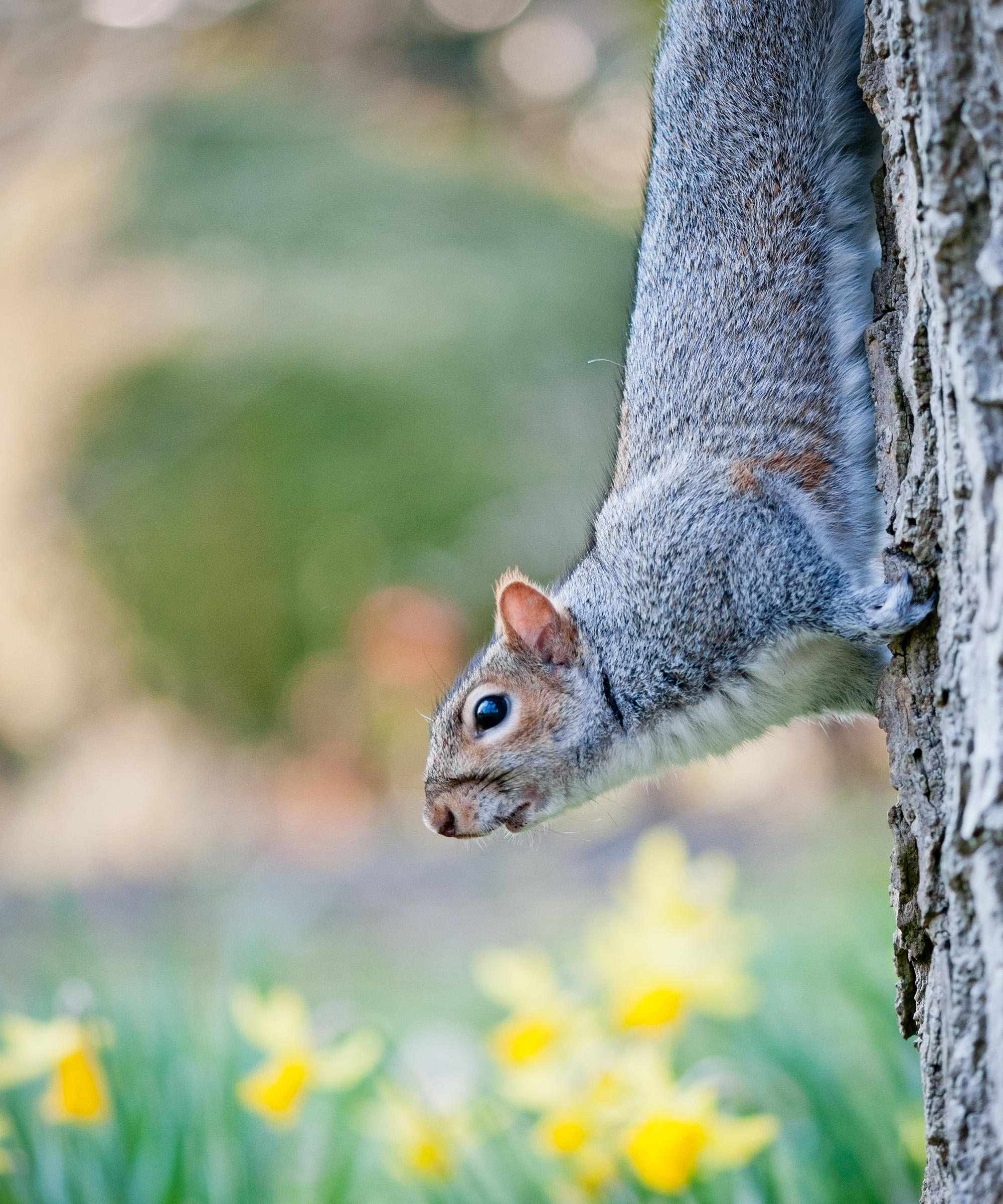
One of the worst pest control mistakes you can make is neglecting to use a mix of deterrents and/or physical barriers. With that in mind, this is what to consider when squirrel-proofing your home:
1. Seal up gaps and openings
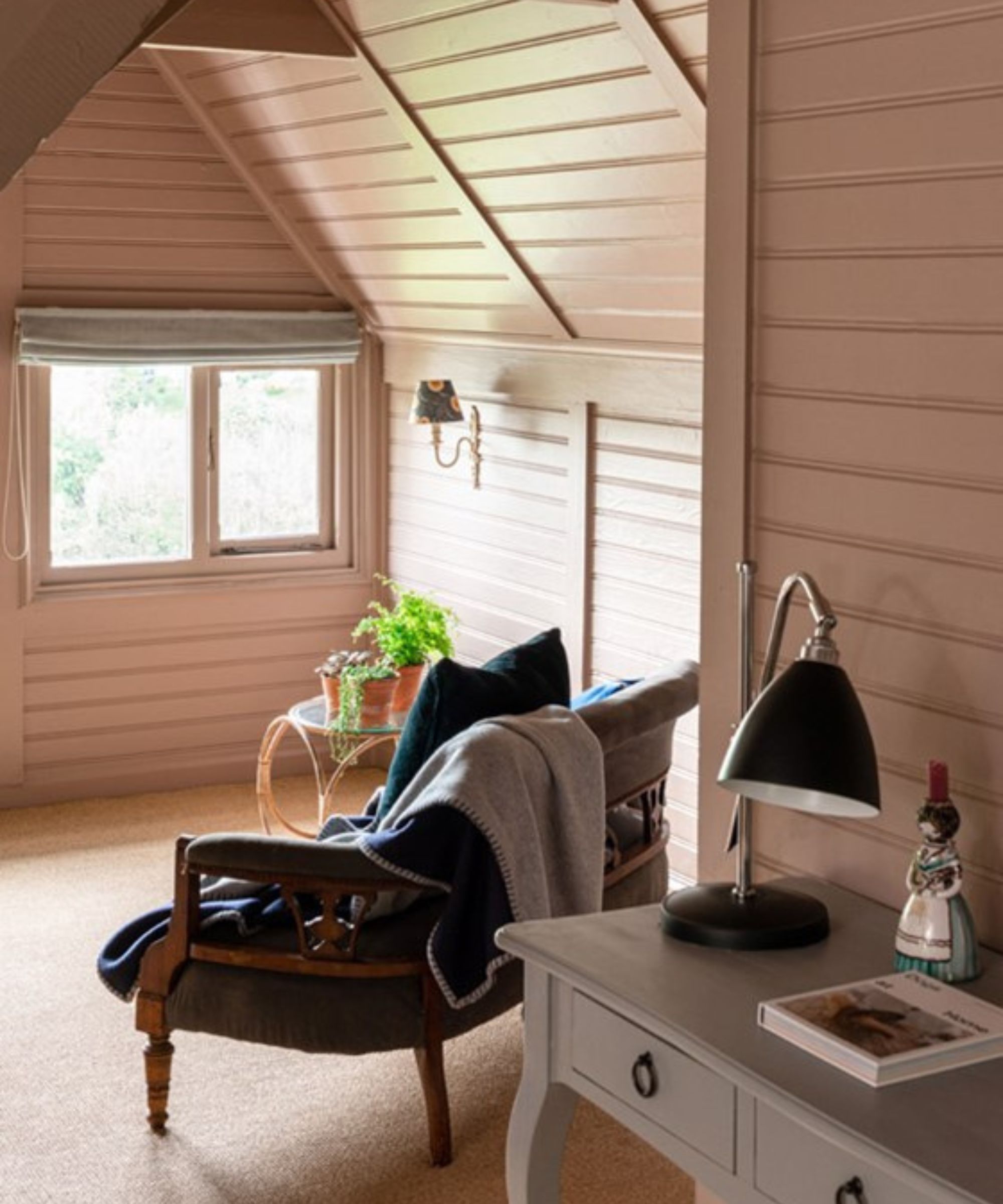
Although sealing up gaps and holes in your roof should be a key part of preparing a house for cold weather anyway, it is particularly important if you want to keep pests and squirrels out, urges Dr. Jim Fredericks, board-certified entomologist:
Design expertise in your inbox – from inspiring decorating ideas and beautiful celebrity homes to practical gardening advice and shopping round-ups.
‘Pests can make their way indoors through small openings, cracks, and crevices in the walls. Some wildlife can also enter through attic vents, chimney sweeps, and openings in the roof of the home.
‘Squirrels only need a hole the diameter of a golf ball (1.5 inches) to squeeze into a building. Plus, they have strong teeth that can be used to make small openings larger.’
As such, Dr. Fredericks recommends installing door sweeps on exterior doors and repairing damaged screens to help keep squirrels from sneaking inside.
‘You should also install chimney caps and repair rotted wood or damage to soffits and facia boards,’ he adds. 'Finally, repair broken covers for exhaust fan openings, soffits, and attic vents.’
2. Cut off access
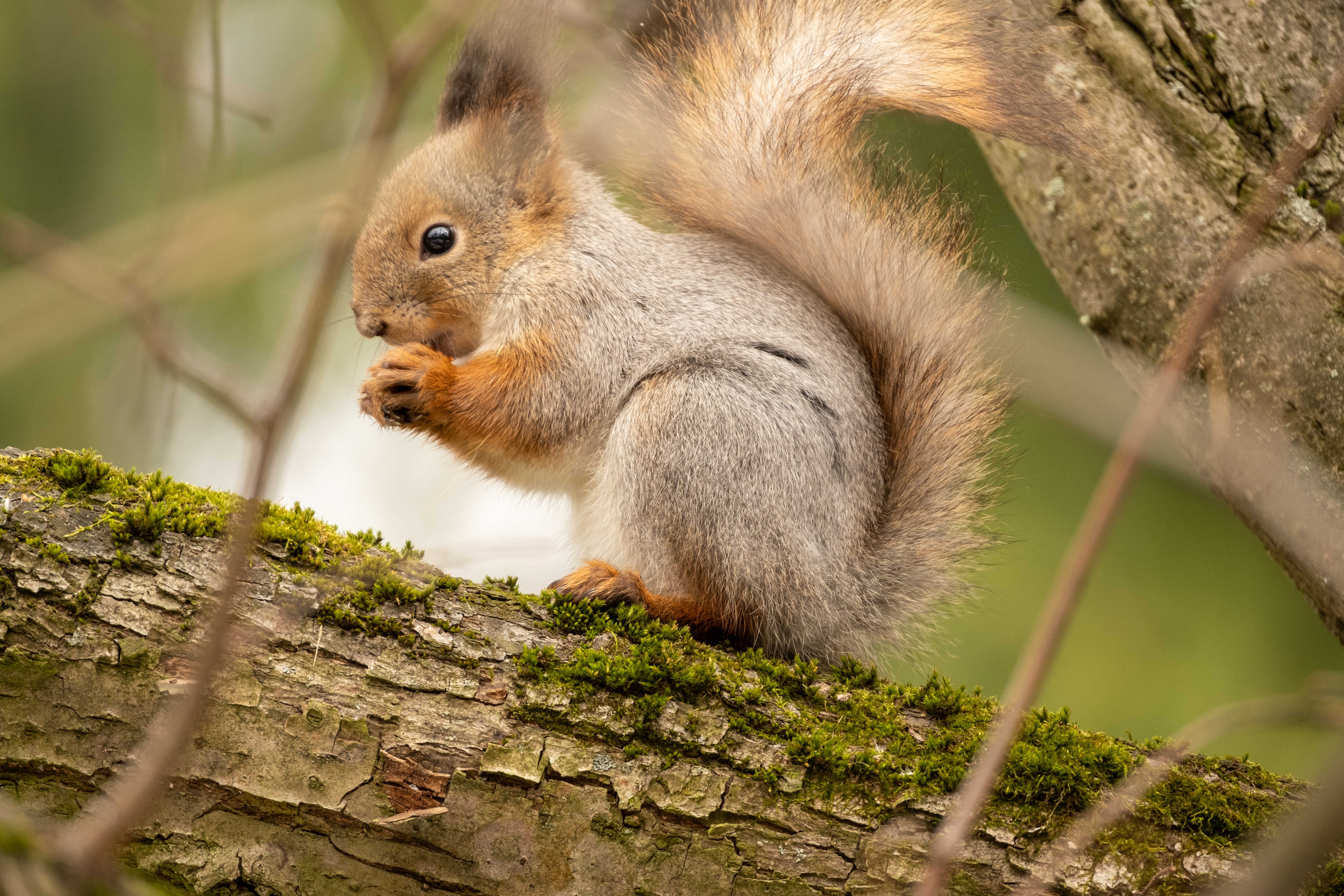
While it is great to plant some of the best trees for wildlife in your yard to help promote a healthy ecosystem, it is important to keep them away from your home so as not to ‘provide a highway onto the roof or walls of a home,’ warns Matt Christensen, pest control expert and owner of Truly Nolen Pest Control franchise:
‘Be sure to trim tree limbs back eight to 10 feet from the gutter/roof line to prevent easy access to potential entry points. Remove overgrown vines from the exterior walls of the home, too,’ he suggests.
3. Remove tempting food sources
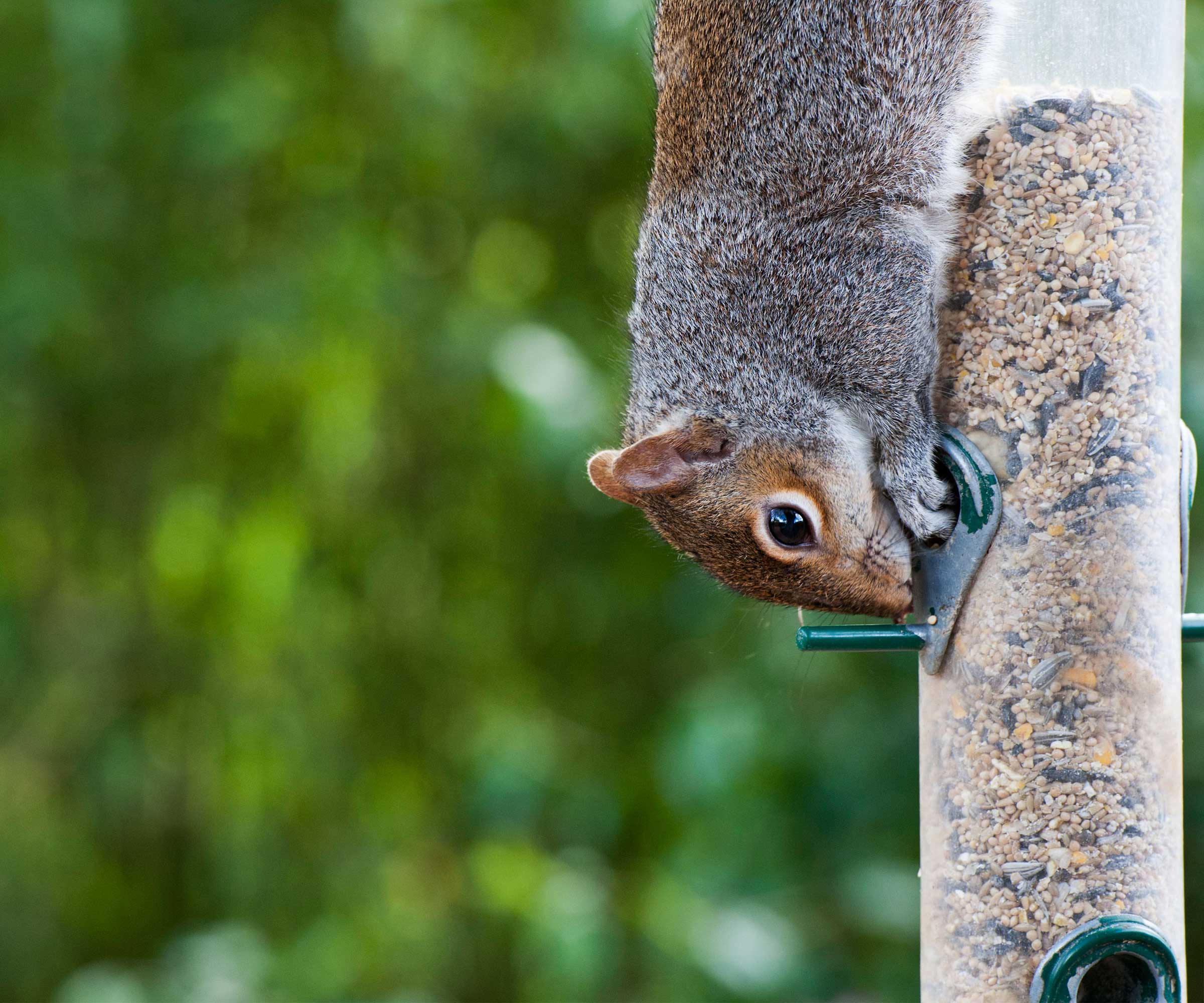
Although you are unlikely to keep food in your attic, food sources in your yard and around the boundary points of your home can encourage squirrels closer, prompting them to explore the rest of your property to see what other gems they can find. To ensure your attic is safe, there are a few things to consider.
'Firstly, it is important to keep squirrels away from bird feeders,' begins Robert (aka Bobby Penny) of Romney Pest Control. 'This could mean moving them at least 25 feet from the property, removing them altogether, or installing squirrel-proof bird feeders that are difficult to climb up and hang onto.'
It also helps to remove any pet food and water bowls from outside of your home.
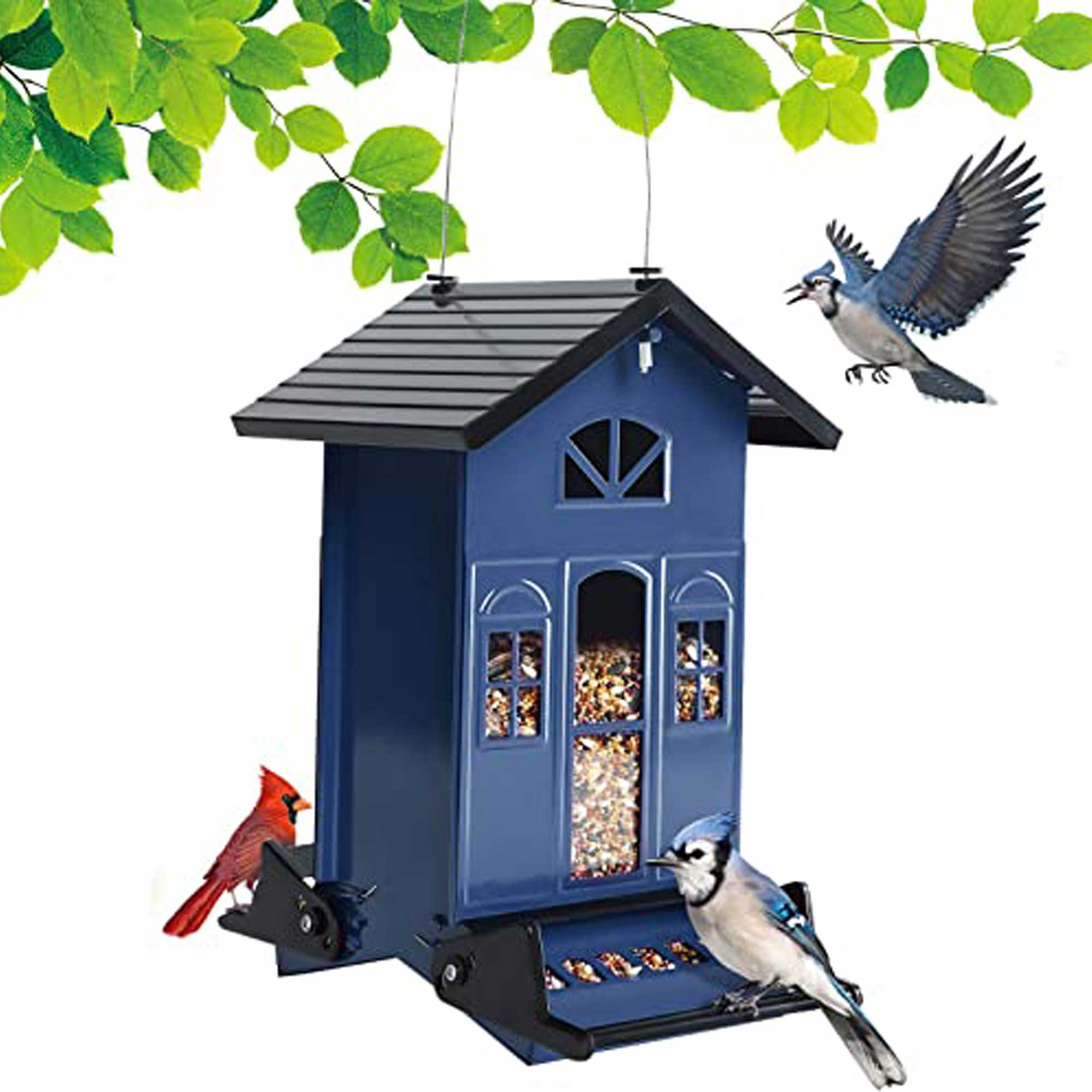
This decorative feeder features an adorable design with weight-activated perches, allowing only birds to feast on the seed. It's constructed from durable metal and can hold up to 5 lbs of black-oil sunflower seed, mixed seed, hulled sunflower seed, or safflower seed.
Dr. Jim Fredericks also adds that garbage and outdoor trash cans should be kept covered or in secure containers that cannot be accessed by animals. Try not to leave brush, leaf piles, or other debris to accumulate, either.
FAQs
What scent do squirrels hate the most?
If you are looking for a good scent deterrent for squirrels, try using strong peppermint oil, capsaicin, coffee grounds, or white vinegar to keep them at bay. Regularly reapply these methods around your home and yard, especially after rain, to help keep squirrels away humanely.
Will a fake owl keep squirrels away?
Using a fake predator such as an owl, fox, or hawk may help to deter squirrels from getting too close to your home, but it is not the most effective deterrent – especially if they start to catch on that they can approach without any risk of harm.
If all fails or you miss something and end up with squirrels in the attic, don't panic. Robert (aka Bobby Penny), a pest control expert, explains that you can quickly force squirrels out by installing a one-way door. The pest will go out in search of food and won't be able to re-enter again – it's a great humane method that requires minimal effort. If, for whatever reason, this doesn't help, calling a pest control expert is your next best bet.

Chiana is Homes & Gardens’ kitchen appliances editor. With a lifelong passion for cooking and baking, she grew up experimenting in the kitchen every weekend with her baking-extraordinaire Mom, and has developed a great understanding of how tools and appliances can make or break your ideal relaxing kitchen routine.
